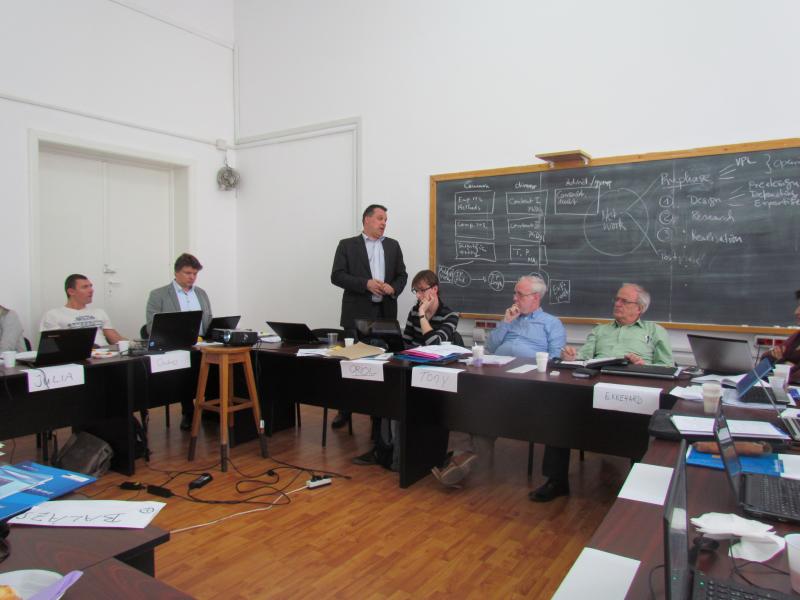
ESRLE meeting: May 2014
ESRALE held its first project meeting at the West University of Timisoara, Romania on 3-5 April 2014. This session opened with a brief overview of the project, its aims and achievements to date. Emphasis was placed on the high levels of teamwork evidenced and on the various deliverables accomplished. Three work groups then spent time working on developing strategies for dissemination and exploitation (The Work Package HERC is leading) in the areas of social networking, a regular electronic newsletter and publications. These were focused on i) developing the existing internal network ii) informing the wider adult education world of the project and iii) involving a wider community in the aims of the project.
Discussion then turned to the joint Masters (EMAE) and PhD programmes. With regards to the EMAE, it was agreed that it needs to be flexible so that it addresses the demands of discrete labour markets. With that in mind, there seems to be a desire for core modules with local variations; the ratio of 70 core to 50 local credits was generally agreed upon. Following discussion it was decided that the following new topic framework should be developed: 1. Theoretical Frameworks; 2. Learning and Teaching; 3. Research and Development; 4. Quality, Management and Organisation; 5. Policy and Economy; 5.Counselling and Evaluation. There was also a proposal that we should be thinking beyond the European context.
As for the joint PhD programme, it was proposed that its central pillars be based on a foundation of ‘Global Dimensions’, i.e. Research, Strategy and Innovation. This specific PhD should be firmly based in the richness of the competence network being made explicit and recognized through the ESRALE project. This must take into account the needs of the increasingly diverse world of adult education. The project needs to build a rich network of co-operation at a European level in order to realize all the above. It was also decided that the summer school will be hosted in Brno from 15-21 September 2014. The emphasis will be on Research and Methodology and specific supervision sessions (facilitated by members of the group). It will be directed at both MA and doctoral students. It is hoped that 2 MA and 2 Doctoral students will attend from at least 6 of the participating institutions.
Discussion then focused on VPL (Valorisation of Prior Learning), more commonly known as RPL (Recognition of Prior Learning). Incorporating informal learning is challenging (it is perceived as awkward and costly); this is not simplified by national/institutional differences. There is frequently an institutional reluctance to engage in any real way with VPL Bearing in mind the inter-national and inter-university divergences around VPL, the project represents an opportunity for the partners to develop a common framework which could act as a model for future building; in such processes a strategic approach would be important. Therefore, VPL needs to be driven by functionality and emphasis needs to be on learning outcomes rather than processes. Moreover, VPL needs to focus on competencies-finding ways to prove that they exist and on clear learning outcomes. For VPL to be effective, ‘counsellors’ need to be trained in assessment and validation of prior learning, in counseling skills, in group facilitation, in guidance etc.

